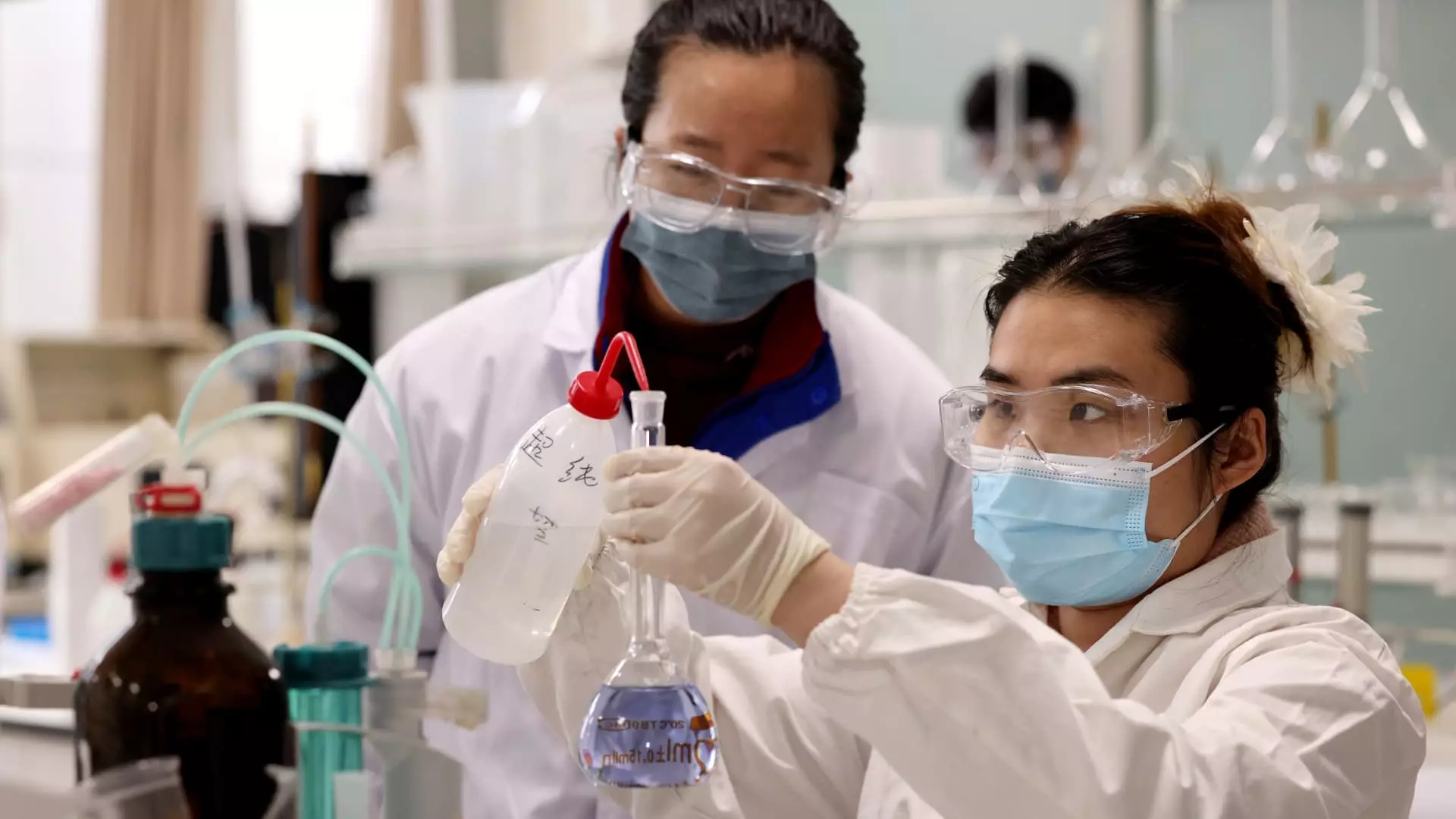As the world shifts its gaze increasingly toward the burgeoning rivalry between the United States and China, one sector is drawing particular attention: biotechnology. Recent studies underscore China’s accelerated strides in this critical field, showcasing its potential to not only challenge but possibly surpass U.S. dominance in the coming years. The Harvard Belfer Center has identified biotech as a key area where “China has the most immediate opportunity” to eclipse the U.S., indicating a seismic shift in global power dynamics. This assertion hints at urgent ramifications that could reshape healthcare and agriculture, potentially impacting lives on a global scale.
While the U.S. retains the upper hand in multiple technological domains, the narrowing gap in biotechnological advancement poses significant questions. The Harvard report suggests that if current trends persist, the very balance of global power could hinge on the developments happening in laboratories across mainland China. This foreboding outlook comes against a backdrop of rising tensions and growing skepticism in Washington regarding China’s rapid ascent in the biotech sector. The implications are profound and chilling, indicating that the time for the U.S. to act is not just now; it is nearly overdue.
The Need for Urgency: Lessons From AI
The urgency surrounding this issue is crystallized in sobering warnings from the U.S. National Security Commission on Emerging Biotechnology. The parallels drawn to the rapid advancements in artificial intelligence serve as a clarion call; a “ChatGPT moment” could easily materialize in biotechnology. If China were to reach this pivotal milestone first, the consequences for the U.S. could be dire, leaving it chasing a lead that would quickly become insurmountable. The report’s assertive stance is clear: American innovation needs a turbo boost, and China’s progress must be tempered through strategic intervention.
The proposed two-track strategy—prioritizing domestic innovation while simultaneously restraining Chinese advancements—offers a glimpse into the high stakes of biotechnological ambition. Yet, the prospect of a pumped-up American biotech industry while simultaneously trying to suppress China’s efforts feels somewhat paradoxical and perilous. We must ask ourselves: is pursuing a more aggressive stance on the global stage the solution, or does it risk fostering an environment of hostility that stifles collaborative progress?
China’s Calculated Advantage
China’s positioning as a formidable player in biotechnology is not by mere happenstance; extensive state support and long-term strategic planning have been pivotal. Back in 2007, the Chinese government underscored biotech as a priority sector, marshaling resources, talent, and regulatory flexibility in ways that the U.S. has not accomplished consistently. The contrast could not be more stark: while the U.S. flounders under a fragmented approach to biotechnology, China’s cohesive, state-led initiatives allow it to nurture cutting-edge innovations rapidly.
Furthermore, the structure of China’s biotech industry—with easier regulatory navigability and a larger talent pool—enhances its competitiveness. Companies there are developing advanced drugs at a rate that is impressively fast-paced compared to their American counterparts, who often grapple with extensive and complicated approval pathways. The significance of this agility cannot be overstated; it could well translate into the speed at which therapies emerge to address pressing health needs.
Potential Global Impacts
The unfolding scenario raises disturbing possibilities regarding global health governance. As countries begin to rely more heavily on biotechnological solutions for various challenges—from pandemics to food security—the ability of China to wield its biotech advancements as leverage poses existential risks for others. The looming question remains: will China emerge as the leader in biotechnological innovation, dictating terms to the global audience, much like its current status in the rare earth mineral market?
The preference for Chinese-developed biotechnology could create a scenario where the U.S. and its allies find themselves in a weakened position, reminiscent of their dependency on Chinese manufacturing. As China spurs forward with investments and innovations, American firms may be pushed towards acquiring their breakthroughs, further entwining the global economy’s destiny with China’s own.
A Future of Competition and Cooperation?
Interestingly, even as tensions escalate, creative solutions arise from unexpected places. The global nature of biotech development, as evidenced by startups like Insilico Medicine, highlights the fundamental interconnectedness of innovation transcending borders. Operating across multiple countries, companies in this domain show that, despite geopolitical tensions, the essence of biotechnology is inherently global. However, this leads to a stark dilemma: how do nations navigate their rivalry in biotechnology while recognizing our shared humanity’s pressing health challenges?
With China surging ahead in this critical sector, the urgency for the U.S. to redefine its biotechnology strategy is undeniable. The stakes are incredibly high; the consequences of inaction could prove damaging. As the world teeters on the brink of biotechnology becoming yet another geopolitical weapon, one thing is evident: only through careful navigation will we ensure that advancements in this vital field serve to lift humanity up rather than fracture it further.

